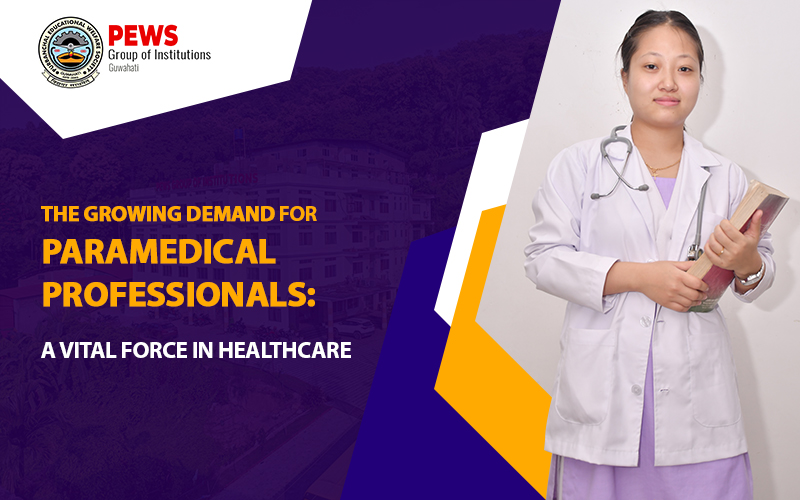
In today's rapidly evolving healthcare landscape, the role of paramedical professionals has become more critical than ever. As the world continues to grapple with a multitude of health challenges, from pandemics to the rising burden of chronic diseases, the demand for skilled paramedical staff is soaring. These unsung heroes of the healthcare sector play a pivotal role in delivering quality care, bridging the gap between patients and doctors, and ensuring the smooth functioning of medical facilities.
The Expanding Scope of Paramedical Services
Paramedical professionals encompass a broad range of healthcare workers, including medical laboratory technicians, radiographers, physiotherapists, emergency medical technicians (EMTs), and more. Their scope of practice extends beyond basic care, as they are often involved in specialized procedures, diagnostic testing, and patient rehabilitation. As healthcare technology advances, the need for skilled technicians who can operate sophisticated medical equipment and interpret complex data is growing exponentially.
Several factors are contributing to the rising demand for paramedical professionals:
1. Aging Population: The global population is aging, leading to an increase in age-related health issues such as heart disease, arthritis, and dementia. This demographic shift requires a greater number of healthcare workers, particularly those trained in geriatric care and rehabilitation.
2. Rise in Chronic Diseases: The prevalence of chronic diseases like diabetes, hypertension, and cancer is on the rise. Paramedical professionals are crucial in managing these conditions through diagnostic tests, patient education, and ongoing monitoring.
3. Advances in Medical Technology: The rapid advancement of medical technology has created a need for trained professionals who can operate and maintain complex medical equipment. This includes everything from MRI machines to advanced prosthetics.
4. Pandemic Preparedness: The COVID-19 pandemic underscored the importance of having a robust healthcare workforce. Paramedical staff were at the frontline, conducting tests, administering treatments, and providing critical support to overwhelmed healthcare systems.
5. Rural Healthcare Needs: In many parts of the world, particularly in rural and remote areas, there is a severe shortage of healthcare professionals. Paramedical workers often serve as the primary caregivers in these regions, making their role indispensable.
Challenges and Opportunities
While the demand for paramedical professionals is high, the sector faces several challenges. These include a lack of standardized training programs, inadequate infrastructure in educational institutions, and limited career progression opportunities. Addressing these issues is crucial to ensuring a steady supply of skilled professionals to meet the growing demand.
On the flip side, the increasing recognition of the importance of paramedical staff presents numerous opportunities. Governments and private institutions are investing in the expansion of paramedical education and training facilities. Additionally, advancements in e-learning and simulation-based training are making it easier for students to acquire the necessary skills, even in remote areas.
The demand for paramedical professionals is set to continue its upward trajectory, driven by an aging population, the rise of chronic diseases, and the need for advanced medical care. These professionals are the backbone of the healthcare system, ensuring that patients receive timely and effective care. As the sector evolves, it is imperative that we continue to support and invest in the education and training of paramedical workers, recognizing their invaluable contribution to global health.
In conclusion, paramedical professionals are not just supporting roles in the healthcare system; they are essential pillars that uphold the entire structure. As the world faces new health challenges, their importance will only grow, making it a promising career path for those interested in making a tangible difference in people's lives.